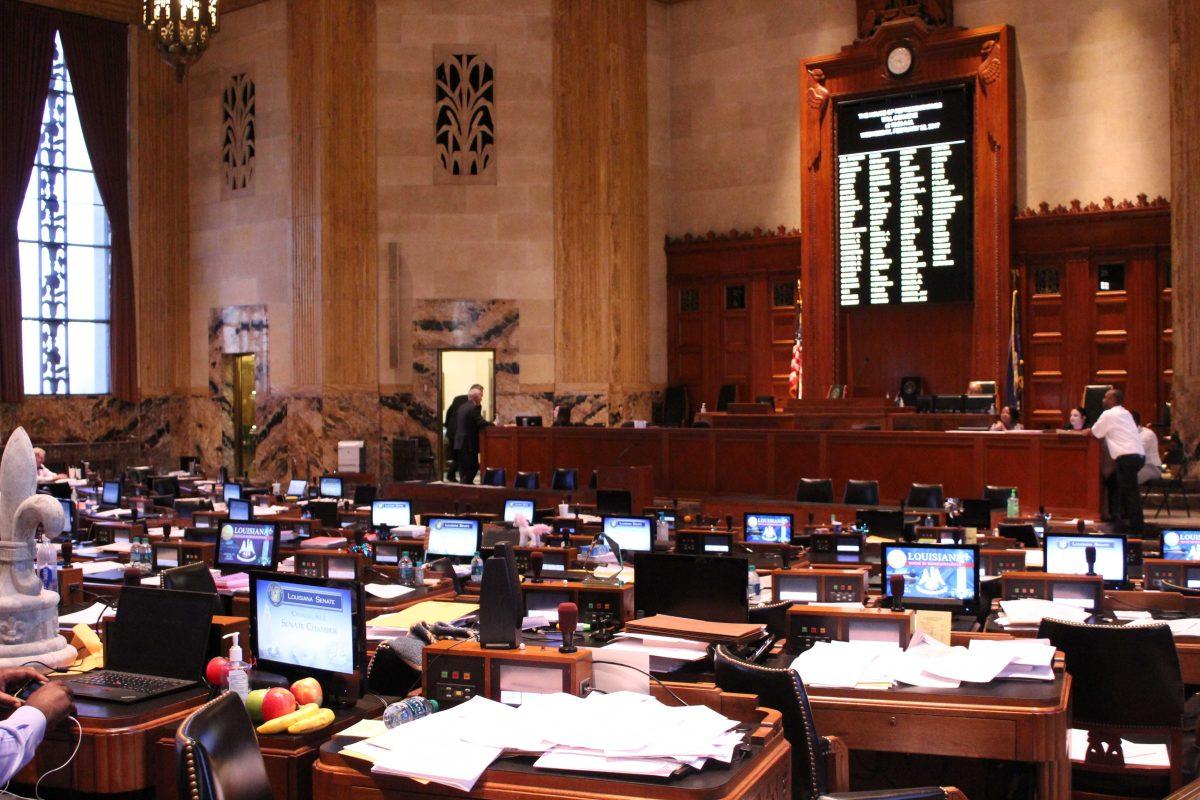Louisiana lawmakers finished their work filling a $304 million mid-year budget gap Wednesday, with the Legislature coming to a compromise following a week of public debates and private negotiations between Democrat Gov. John Bel Edwards and Republican legislators.
The 10-day special session ended with neither Edwards, who wanted to use $119 million from the Budget Stabilization fund, nicknamed the rainy day fund, nor House Republicans, who wanted to use far less, getting precisely what they wanted.
“Not all of us probably agree with the number that we’ve arrived,” House Speaker Taylor Barras, R-New Iberia, said. “This is the negotiation that is required.”
Lawmakers settled on using $99 million from the state’s emergency fund, while shifting money around and cutting around $82 million in spending to fill the rest of the gap. The deal, whereby enough Republicans agreed to use $99 million from the Rainy Day Fund, hinged on passing a bill by Barras to skim dedicated funds for debt reduction starting next year.
Lawmakers agreed overwhelmingly to the deal, with 92 representatives voting to use the rainy day fund to help fill the gap, which was well above the 70-vote supermajority required.
“You know you’re in a good place when nobody is happy,” Edwards said in a press conference after lawmakers adjourned. “If the crystal ball is right, it will be harder to do that in April than it was today — and, of course, it wasn’t easy today.”
The governor expressed optimism about the lines of communication between his office and lawmakers, adding negotiations improved as the session wore on.
Edwards did not allow the Legislature to consider tax increases during the 10-day special session. Some Republicans wanted the governor to cut enough spending to solve the shortfall without a special session, but only nine voted no to the final agreement in the House.
The overwhelming vote for the deal indicates the Legislature could be moving away from the incessant fighting and tribalism that plagued their work last year, when inherent divisions between a Democratic governor and GOP Legislature were magnified and both sides struggled to get their work finished.
But some are quietly worrying about what lies ahead this spring. Lawmakers convene a regular eight-week session in April with a $1.5 billion fiscal cliff looming when tax increases fall off the books in 2018.
“We were able to reach a consensus, I think that bodes well,” Rep. Julie Stokes, R-Kenner, said. “But the amount of time and posturing it took. I’m very concerned. Because this issue pales in comparison to what we need to do in the regular session.”
Plus, the state faces a more than $400 million deficit for next fiscal year, which must also be addressed in the 2017 general session. Edwards said he believes the state is in a much better fiscal position this year than it was the same time last year.
“I’m optimistic, but I’m certainly not delusional. It won’t be easy,” Edwards said.
The nine representatives, all Republicans, who opposed Senate Concurrent Resolution 2, which set the Rainy Day withdrawal authorization at the $99 million level, were Reps. John Berthelot, Reid Falconer, Bob Hensgens, Frank Howard, Blake Miguez, Jay Morris, Steve Pylant, Clay Schexnayder and Alan Seabaugh
All other members of the House voted in favor, with Rep. Scott Simon, R-Albita Springs, absent from the vote.
Special session closes after legislators strike deal
By Sam Karlin
February 22, 2017
Special Session
More to Discover








